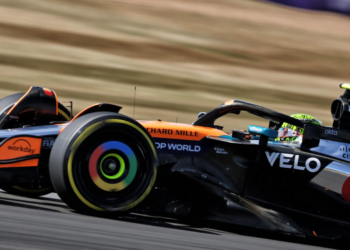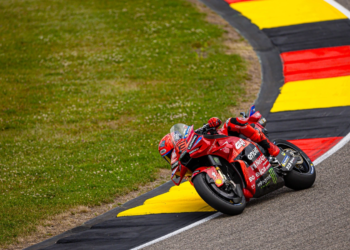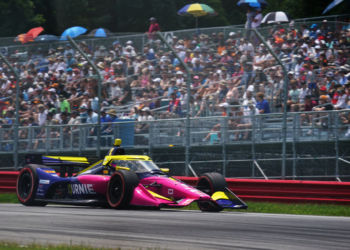Formula 1’s 11 teams have failed to unanimously agree on delaying FRIC (front to rear inter-connected) suspension systems until 2015, meaning the system will be classed as ‘illegal’ during the German Grand Prix weekend onwards.
The FIA issued a technical directive last week making clear that it believed the system, which reduces roll and pitch to ensure the car is aerodynamically efficient at all times, is illegal under ‘moveable aerodynamic devices’.
Despite FRIC having failed to attract much attention from the governing body since it was introduced by Lotus many years ago, intense development in the area has seen the systems become ever more complex and expensive.
The FIA therefore is keen to see it banned, but was willing to wait until next season if all the teams could reach a unanimous agreement to do so.
Anyone who follows the sport will know that getting all 11 teams to agree on something sensible is nigh on impossible. And it seems this is once again the case.
Despite a group – consisting mainly of the larger teams – agreeing not to protest each other for running FRIC this season, they have failed to persuade some smaller teams, notably Caterham, Force India and Sauber, to do the same.
The system will therefore have to be removed ahead of the German GP – something McLaren have confirmed they had already intended to do – to ensure their cars remain legal.
Should they continue to run FRIC suspension, they run the risk of coming under protest from a rival outfit, which would likely see the results of the race invalidated and the culprit excluded.
Removing the system isn’t an easy task for some teams, particularly those that have designed their cars around it. Whilst it isn’t expected to change the pecking order hugely, Force India COO Otmar Szafnauer put the advantage of running a complex version at around half a second.
“It can make a significant difference, it can be half a second a lap if not more depending on if you’ve developed the entire car around it over the winter and in the wind tunnel,” he said. “If that’s the case it can make a significant difference.”






